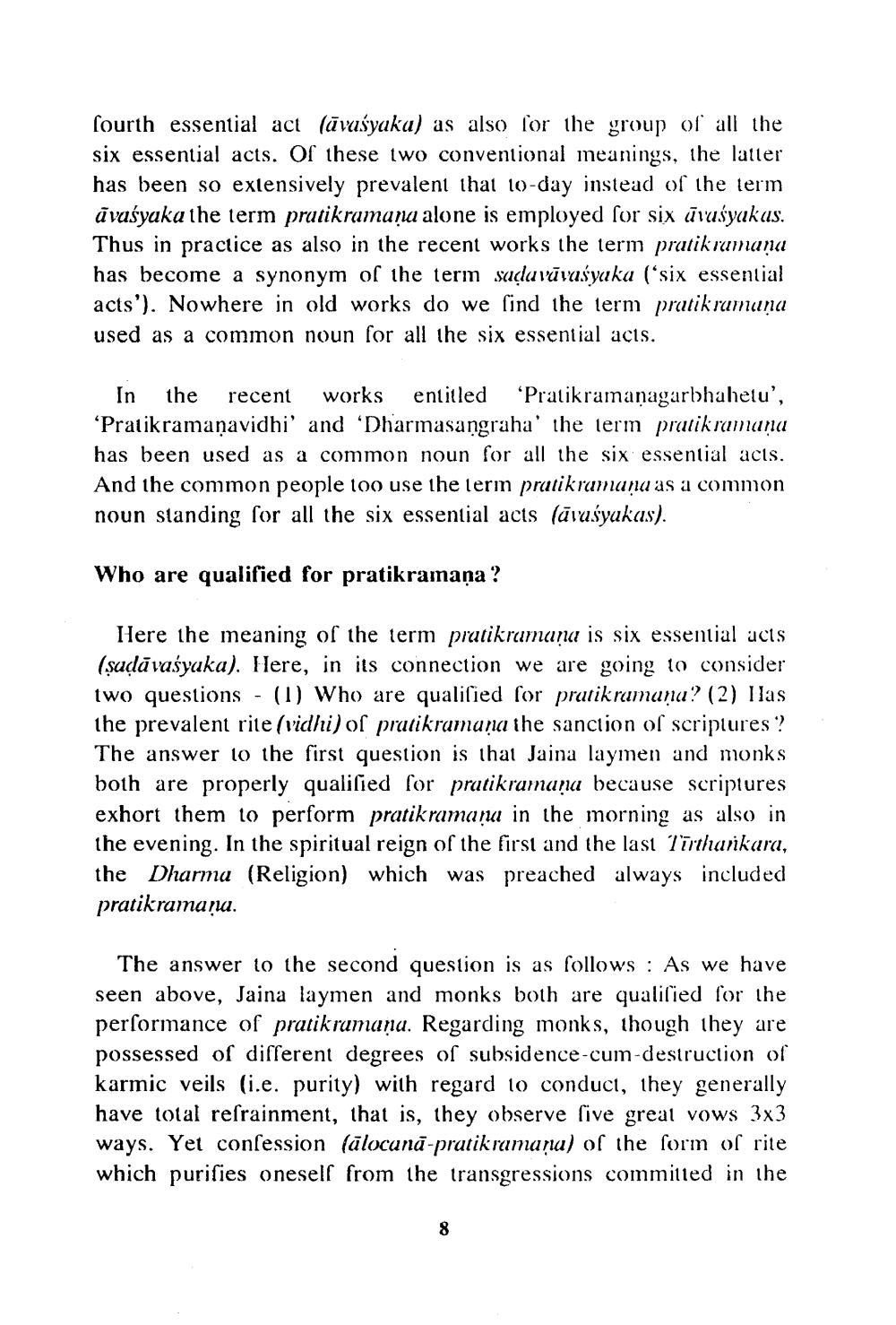________________
fourth essential act (āvasyaka) as also for the group of all the six essential acts. Of these two conventional meanings, the latter has been so extensively prevalent that to-day instead of the term avaśyaka the term pratikramaṇa alone is employed for six āvaśyakas. Thus in practice as also in the recent works the term pratikramaṇa has become a synonym of the term saḍavavaśyaka ('six essential acts'). Nowhere in old works do we find the term pratikramaṇa used as a common noun for all the six essential acts.
In the recent works entitled
'Pratikramaṇagarbhahetu',
'Pratikramaṇavidhi' and 'Dharmasangraha' the term pratikramaņa has been used as a common noun for all the six essential acts. And the common people too use the term pratikramaņa as a common noun standing for all the six essential acts (āvaśyakas).
Who are qualified for pratikramana?
Here the meaning of the term pratikramana is six essential acts (ṣaḍāvasyaka). Here, in its connection we are going to consider two questions (1) Who are qualified for pratikramaņa? (2) Has the prevalent rite (vidhi) of pratikramaṇa the sanction of scriptures? The answer to the first question is that Jaina laymen and monks both are properly qualified for pratikramaṇa because scriptures exhort them to perform pratikramaņa in the morning as also in the evening. In the spiritual reign of the first and the last Tīrthankara, the Dharma (Religion) which was preached always included pratikramaņa.
The answer to the second question is as follows: As we have seen above, Jaina laymen and monks both are qualified for the performance of pratikramaņa. Regarding monks, though they are possessed of different degrees of subsidence-cum-destruction of karmic veils (i.e. purity) with regard to conduct, they generally have total refrainment, that is, they observe five great vows 3x3 ways. Yet confession (ālocanā-pratikramaņa) of the form of rite which purifies oneself from the transgressions committed in the
8




